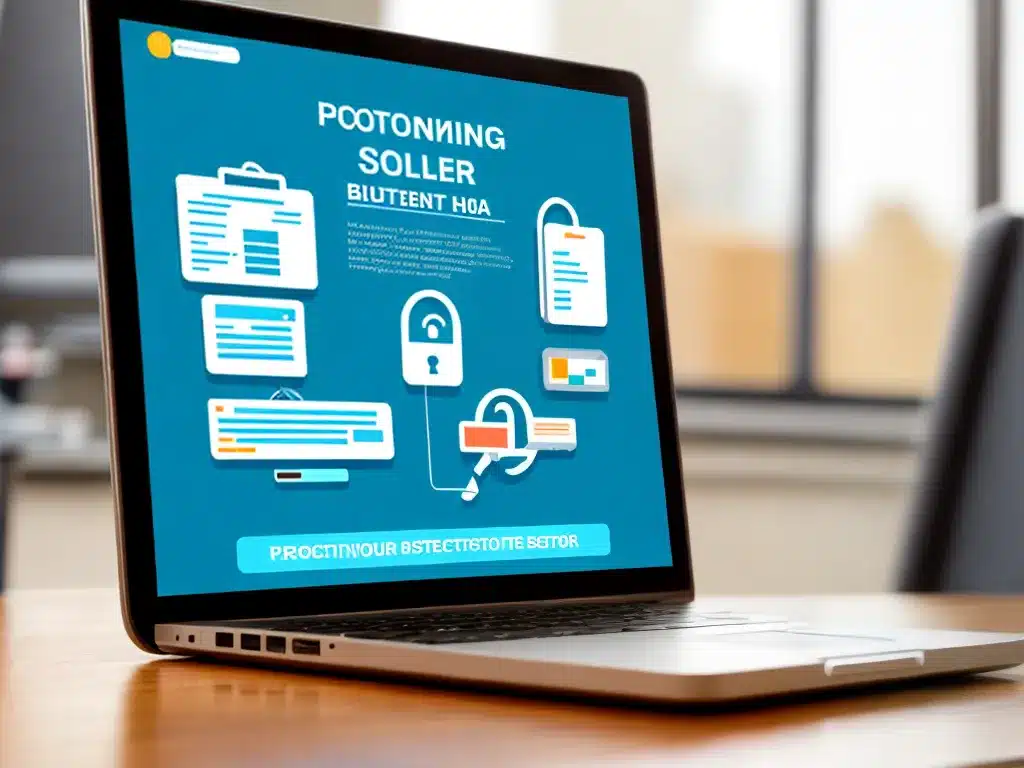
As a small business owner, protecting your customers’ personal data should be a top priority. Handling data properly not only builds trust with customers but also keeps your business compliant with privacy laws. This article will explore best practices for securing customer information and minimizing risks as a small business.
Why Customer Data Security Matters
Mishandling customer data can seriously damage your business’s reputation and bottom line. Here are some key reasons to make data security a priority:
Build Customer Trust
Customers need to know their personal information is safe with you. Data breaches often make headlines and erode consumer confidence. Strong security reassures customers and earns their loyalty.
Avoid Costly Lawsuits
Failing to protect data can lead to expensive legal issues. Privacy laws like GDPR impose heavy fines for violations. Negligence also opens you up to lawsuits from wronged customers.
Prevent Reputational Damage
Data breaches often generate negative publicity. The resulting PR crisis can sink customer confidence in your brand for good. Protecting data helps avoid this reputation-damaging scenario.
Comply With Regulations
Depending on your location and industry, regulations like HIPAA or PCI DSS may apply to your handling of customer information. Non-compliance results in hefty penalties.
Best Practices for Securing Customer Data
Protecting customer data requires an ongoing, multilayered approach. Here are some best practices to follow:
Carefully Collect Only Necessary Data
Avoid over-collecting customer information. Only gather essential data like names, addresses, phone numbers, and payment details for transactions. Limiting your data collection reduces your risk exposure.
Encrypt Sensitive Data
Use encryption to scramble sensitive data like credit card numbers in transit and at rest. This renders the information unreadable without a decryption key. Popular techniques include SSL/TLS and database encryption.
Anonymize Data Where Possible
Removing personally identifiable information from customer data sets limits your risk while preserving analytical insights. Data anonymization techniques like hashing and tokenization enable this.
Restrict Internal Data Access
Give employees access to customer data only on a need-to-know basis. Institute role-based access controls and reassess permissions regularly. Limiting access reduces insider threats.
Vet Third-Party Access
Thoroughly vet any third party requesting access to customer data, such as service providers. Ensure proper contracts are in place for confidentiality and use limitations.
Regularly Review Security Controls
Review your security policies, procedures, and technology regularly to identify gaps. Keep controls updated to address emerging risks and comply with evolving regulations.
Train Employees on Security
Educate employees about properly using and protecting customer data. Establish security policies and procedures and enforce them through training. Watch for warning signs of negligence or misuse.
Respond Quickly to Incidents
Have an incident response plan ready for possible data breaches. Quick reaction can mitigate damage by stopping attacks and notifying affected customers and authorities.
Common Data Security Threats for Small Businesses
While data threats exist for enterprises and small businesses alike, limited resources can make small companies especially vulnerable. Watch out for these common data security challenges:
Phishing Attacks
Phishing scams use emails, calls, or texts to trick employees into handing over login credentials or sensitive data. Lack of training makes small business staff prone to these social engineering ploys.
Weak Passwords
Employees often use simple passwords that are easy to guess or crack with brute force. Enforce strong password policies and multifactor authentication to prevent unauthorized access.
Outdated Software
Old software accumulating security holes over time is common at small businesses on tight budgets. Prioritize patching and upgrading systems to eliminate vulnerabilities.
BYOD Security Risks
Staff using personal devices for work opens backdoors to business networks and data. Implement a BYOD policy guiding appropriate use of personal devices.
Cloud Data Exposures
Cloud applications mishandled by untrained staff cause widespread data leaks. Properly configure cloud access permissions and teach cloud security best practices.
Key Takeaways for Small Businesses
Protecting customer data should be central to your business operations as a small company. Follow these important tips:
-
Make data security a regular boardroom discussion rather than an afterthought.
-
Know the data protection laws applicable to your location, industry, and customer base. Stay compliant.
-
Perform security risk assessments to identify and address vulnerabilities proactively.
-
Use encryption, access controls, and data minimization to safeguard sensitive customer information.
-
Make security training mandatory for employees to ingrain good data hygiene habits.
-
Monitor for warning signs of negligence or emerging threats. Continuously adapt your security program.
With constant vigilance and commitment to protecting customer data, your small business can earn trust while avoiding costly slipups. Data security is an investment in your reputation and long-term success.












